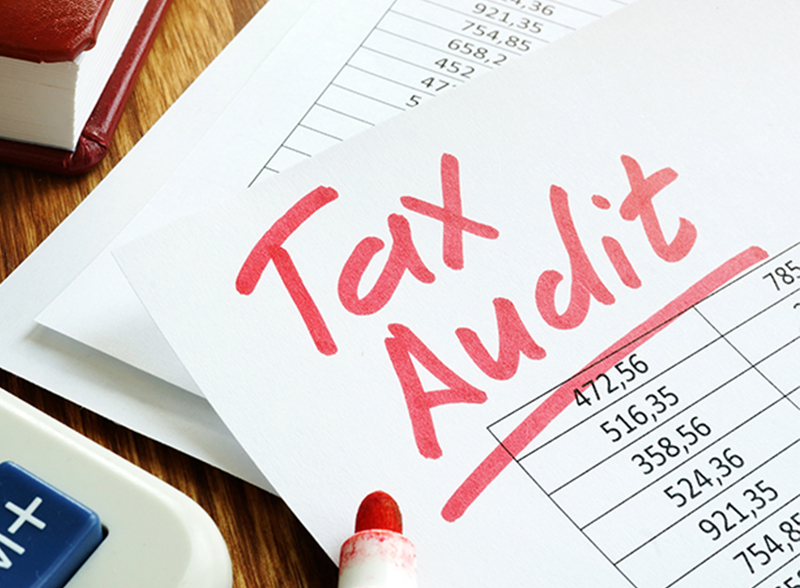
Tax Audit
Understanding Tax Audits and Their Implications
In essence, an audit entails a thorough examination and validation of financial records, transactions, and accounts. A tax audit, however, is a specific process focused on scrutinizing a taxpayer’s accounts to ensure compliance with the provisions of the Income Tax law.
Section 44AB of the Income Tax Act, 1961 governs the audit of accounts for certain individuals and entities engaged in business or professions. Those falling within this category are legally obliged to undergo a tax audit conducted by a Chartered Accountant (CA). The CA reviews and verifies these accounts to ensure compliance with various Income Tax law provisions. This mandatory audit, as stipulated by Section 44AB, is commonly known as a tax audit.
The culmination of a tax audit is the preparation of an audit report by the Chartered Accountant. This report contains findings and observations related to the taxpayer’s compliance with tax laws.
The primary objectives of a tax audit are to:
- Ensure the accurate and lawful recording and accounting of financial records and transactions.
- Verify that the recorded income reflects the actual earnings of the taxpayer.
- Confirm the accuracy of claims for deductions made.
Mandatory Tax Audits
A taxpayer must undergo a tax audit under the following circumstances:
- When the sales, turnover, or gross receipts of a business exceed Rs 1 crore in a fiscal year. Additional situations may also necessitate a tax audit.
Tax Audit Categories
The threshold limits and conditions for businesses and professions are outlined as follows:
Business:
- Conducting business (without opting for presumptive taxation) with total sales, turnover, or gross receipts exceeding Rs. 1 crore in the fiscal year.
Profession:
- Engaging in a profession with total gross receipts exceeding Rs 50 lakh in the fiscal year.
- Pursuing a profession eligible for presumptive taxation under Section 44ADA and either claiming profits below the prescribed limit or having income exceeding the maximum amount not chargeable to income tax.
Business Loss:
- Experiencing a business loss without opting for presumptive taxation, with total sales, turnover, or gross receipts exceeding Rs 1 crore, requires a tax audit under Section 44AB.
- When total income exceeds the basic threshold limit, and there’s a loss from business activities (without opting for presumptive taxation), a tax audit is mandatory.
- Businesses opting for presumptive taxation under Section 44AD and incurring a business loss with income below the basic threshold limit are exempt from tax audits.
- Businesses opting for presumptive taxation under Section 44AD and incurring a business loss with income exceeding the basic threshold limit must declare taxable income below the limits prescribed under the presumptive tax scheme.
Please note that the threshold limit for a tax audit may be increased to Rs 5 crore, starting from AY 2020-21 (FY 2019-20), provided specific conditions related to cash receipts and payments are met.
Enhance your comprehension of tax audits to ensure compliance, manage risks, and safeguard your financial records and claims.


